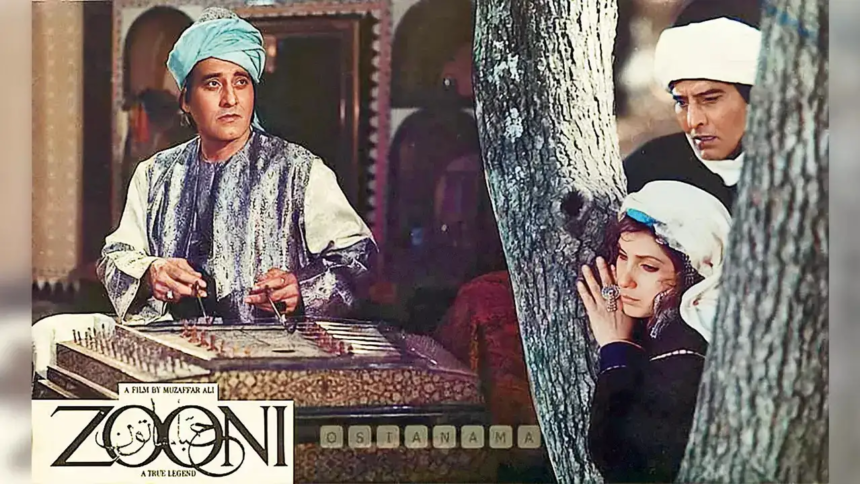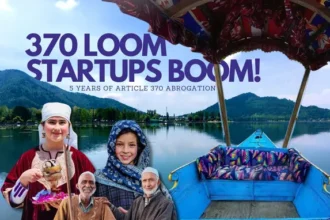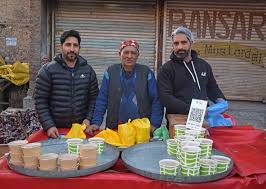Bollywood Film Zooni
The film Zooni represents the remarkable cinematic journey through the life of Habba Khatoon, a legendary 16th-century Kashmiri poet-queen. The project, initially begun in 1988 by filmmaker Muzaffar Ali, has experienced an extraordinary production history marked by significant interruptions and resilience.
The film centers on the life of Habba Khatoon, also known as Zoon, a remarkable woman who emerged from a humble peasant background to become a celebrated poet and queen. Born in 1554 in a poor farmer’s family near Srinagar, she was a child prodigy with an extraordinary talent for poetry and music. Her life story is a powerful narrative of personal transformation and artistic brilliance, challenging the societal norms of her time.
Production History
The film’s production journey is as complex as its subject’s life. Originally conceived in 1988 with Dimple Kapadia and Vinod Khanna in the lead roles, Zooni was unexpectedly shelved due to the political turbulence in Kashmir. The project remained dormant for decades, symbolizing the challenging cultural landscape of the region. In a promising development, a film restoration undertaking was announced in 2024, breathing new life into this long-awaited cinematic project.
Artistic and Cultural Significance
Muzaffar Ali’s vision for Zooni extends beyond a mere biographical film. The project aims to capture the essence of Kashmiri culture, exploring the life of Habba Khatoon, who was known as the ‘Nightingale of Kashmir’. Her poetry was revolutionary for its time, breaking traditional boundaries and expressing personal and romantic themes typically reserved for men.
Historical Narrative
Habba Khatoon, born as Zoon in 1554 in the small village of Chandrahar near Pampore, Kashmir, represents an extraordinary narrative of artistic and personal transformation that transcends the traditional boundaries of her time. Born into a poor peasant family, her early life was marked by remarkable resilience and an innate intellectual curiosity that set her apart from other women of 16th-century Kashmiri society. From her childhood, Zoon demonstrated an exceptional aptitude for learning, an uncommon trait for women during that era. With the assistance of a local moulvi (Muslim scholar), she learned to read, a skill that would later become fundamental to her poetic journey.
Significane of Name ‘Zoon’
Her name ‘Zoon’ (meaning moon) was bestowed by a Sufi saint who was captivated by her extraordinary beauty and potential. Her initial marriage to Aziz Lone, an illiterate peasant, was fraught with personal challenges. Subjected to constant ridicule from her mother-in-law and sister-in-law, and receiving little support from her husband, Zoon experienced profound emotional struggles. These personal hardships became the crucible from which her revolutionary poetry emerged, transforming personal pain into artistic expression. Unlike the predominantly spiritual and introspective poetry of her male contemporaries, Habba Khatoon introduced a radical new dimension to Kashmiri literature. Her verses were deeply personal, focusing on earthly love, human emotions, and individual experiences. She pioneered a poetic form called ‘lol’, similar to English lyrics, and uniquely employed the language of ordinary people, making her poetry accessible and revolutionary. A transformative moment in her life occurred when Yusuf Shah Chak, the last independent ruler of Kashmir, heard her singing under a chinar tree. Mesmerized by her beauty and extraordinary talent, he fell deeply in love and married her, dramatically elevating her social status from a peasant girl to a queen. This union represented not just a personal transformation but a profound cultural moment that challenged existing social hierarchies.
Separation of Zooni and Yousuf Shah
Their love story, however, was tragically interrupted when the Mughal Emperor Akbar imprisoned Yusuf Shah Chak in Bihar, where he ultimately died. This separation profoundly impacted Habba Khatoon, who subsequently embraced an ascetic lifestyle, wandering through the Kashmir valley and composing heart-wrenching songs of grief and remembrance. Recognized as the ‘Nightingale of Kashmir,’ Habba Khatoon’s legacy extends far beyond her poetry. She emerged as a symbol of artistic rebellion, personal resilience, and feminine empowerment in a deeply patriarchal society. Her work challenged conventional literary traditions, introducing a raw, emotional authenticity that was unprecedented in Kashmiri literature. Despite scholarly debates about the exact corpus of her work, her influence on Kashmiri cultural and literary traditions remains immense. She transformed the understanding of poetry from a distant, philosophical construct to a deeply personal, emotionally charged medium of expression. Her songs continue to resonate, capturing the universal human experiences of love, separation, longing, and resilience.
Musical Legacy
The film’s musical aspect is particularly noteworthy. All songs were written by Shahryar and performed by legendary singers like Asha Bhosle. The music promises to be a significant element of the film, reflecting the poetic tradition that Habba Khatoon herself embodied.
Contemporary Relevance
Zooni is more than a historical film; it’s a cultural restoration project. It aims to showcase the rich cultural heritage of Kashmir, provide employment to local artists, and bring international attention to the region’s artistic traditions. The film’s potential restoration represents hope and continuity, bridging historical narrative with contemporary storytelling. It stands as an example to enduring power of art and remarkable life of a woman who transformed her personal struggles into timeless poetry.
In the broader context of 16th-century Kashmiri society, Habba Khatoon ‘Zooni’ represents more than a poet; she embodies a revolutionary spirit that challenged social norms, celebrated individual expression, and paved the way for future generations of artists and women to articulate their experiences freely and powerfully. Her life and work serve as a testament to the transformative power of art, the strength of individual spirit, and the enduring capacity of human creativity to transcend societal limitations. Through her poetry, Habba Khatoon immortalized not just her personal journey, but the collective emotional landscape of her time, creating a timeless narrative that continues to inspire and move people across generations.







